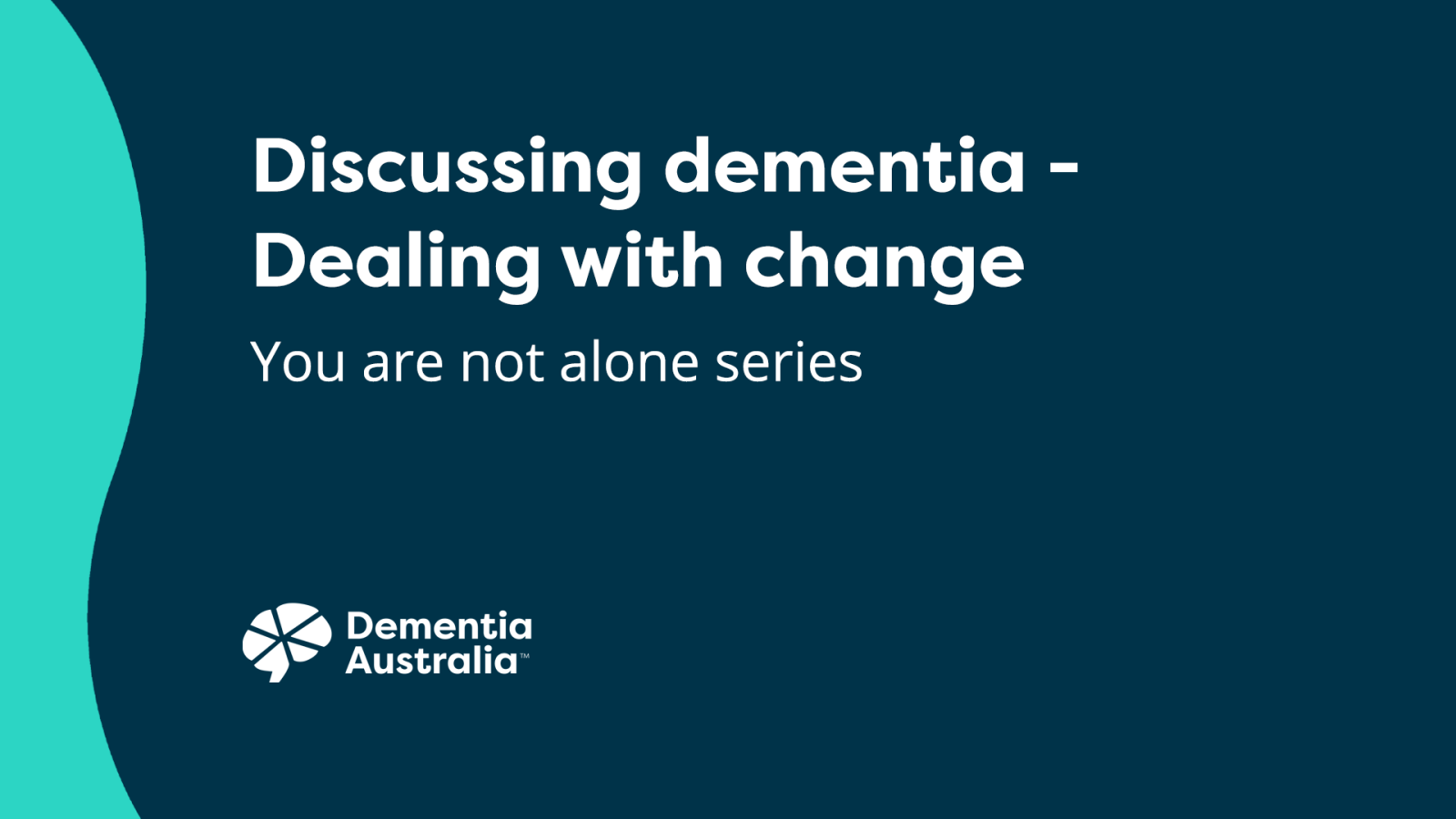Your feelings
Being diagnosed with younger onset dementia affects everyone differently. It’s natural to feel shocked, embarrassed, angry, frustrated, sad, or even a sense of loss. Know that whatever you’re feeling is completely valid.
Dementia is one of the most misunderstood conditions in the world, so it’s important to know the facts. Understanding your diagnosis and how dementia will affect your life can help you manage many of these emotions and gain a new perspective.
Managing your feelings with younger onset dementia
Opening up about your emotions can help you come out stronger. You can turn to Dementia Australia for guidance, resources and support from people who understand what you’re going through.
Dealing with change
As you navigate this new chapter of your life, it’s essential you know you’re not alone. There are millions of Australians just like you who have been touched by dementia.
For family and friends, it can also be a challenging time – learning to adapt to new changes that come with dementia.
Staying active, keeping involved in the community, doing activities and having things to look forward to can help you or your loved one maintain a sense of normality.
Watch the following video ‘Dealing with changes’ for strategies to adjust to life with dementia. Or, read the video transcript.
Talking about your younger onset dementia diagnosis
If you’ve been diagnosed with dementia, knowing how to talk about your diagnosis with people in your life is important. Talking to your family and friends about what you need can help them be sensitive and supportive.
It’s okay if you’re unsure how to discuss the diagnosis. Your doctor, social worker, or a Dementia Australia counsellor can help you find the right strategy.
You can also contact the National Dementia Helpline on 1800 100 500 to talk to someone who understands what you’re going through.

